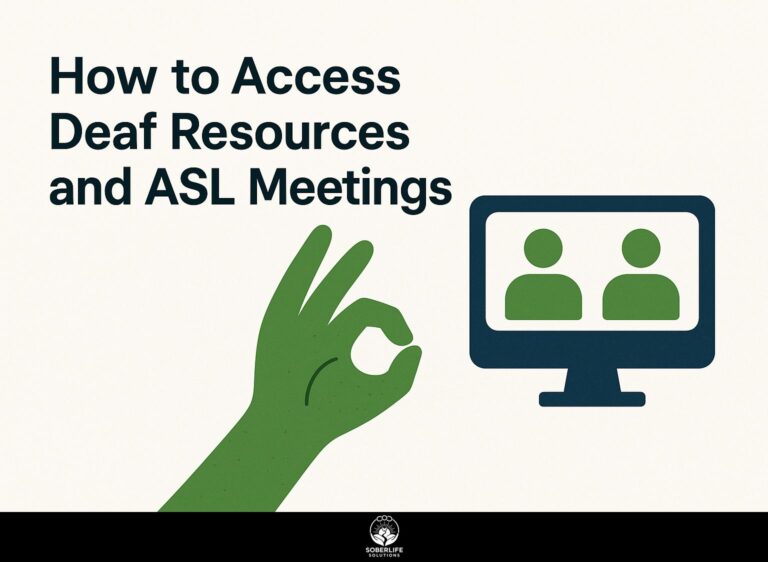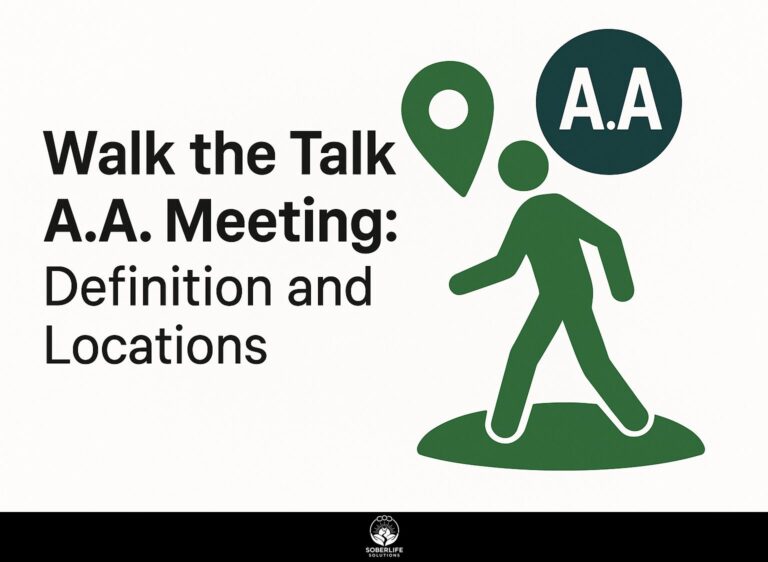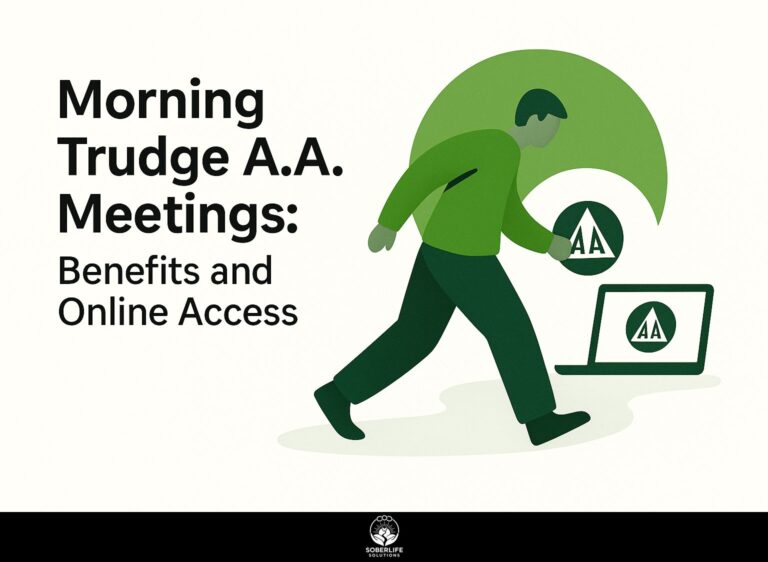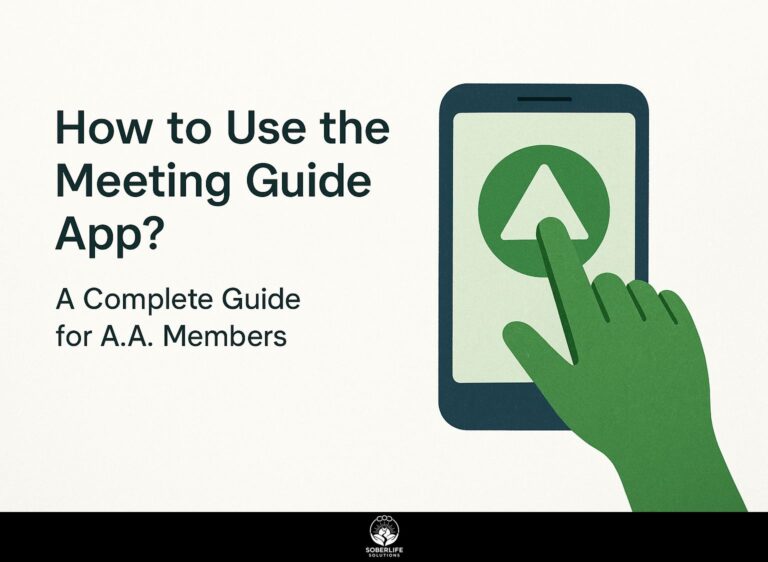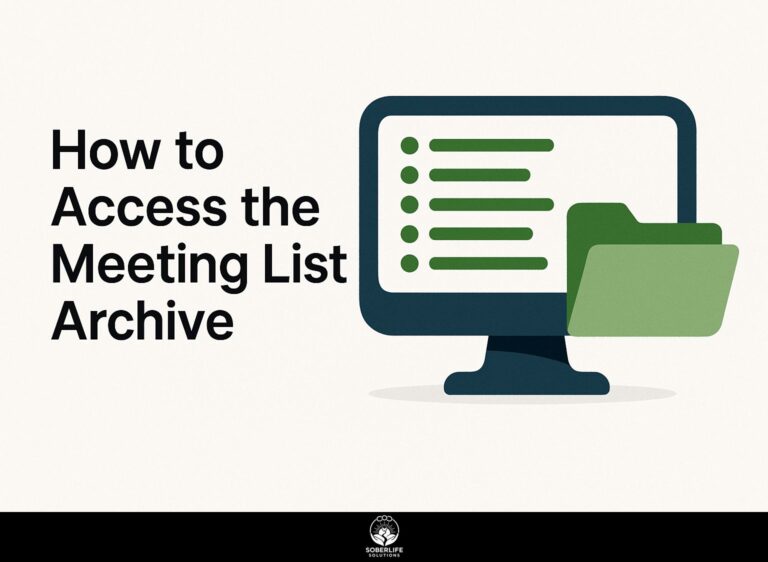A.A. Meetings: Formats, Benefits, and Key Reflections
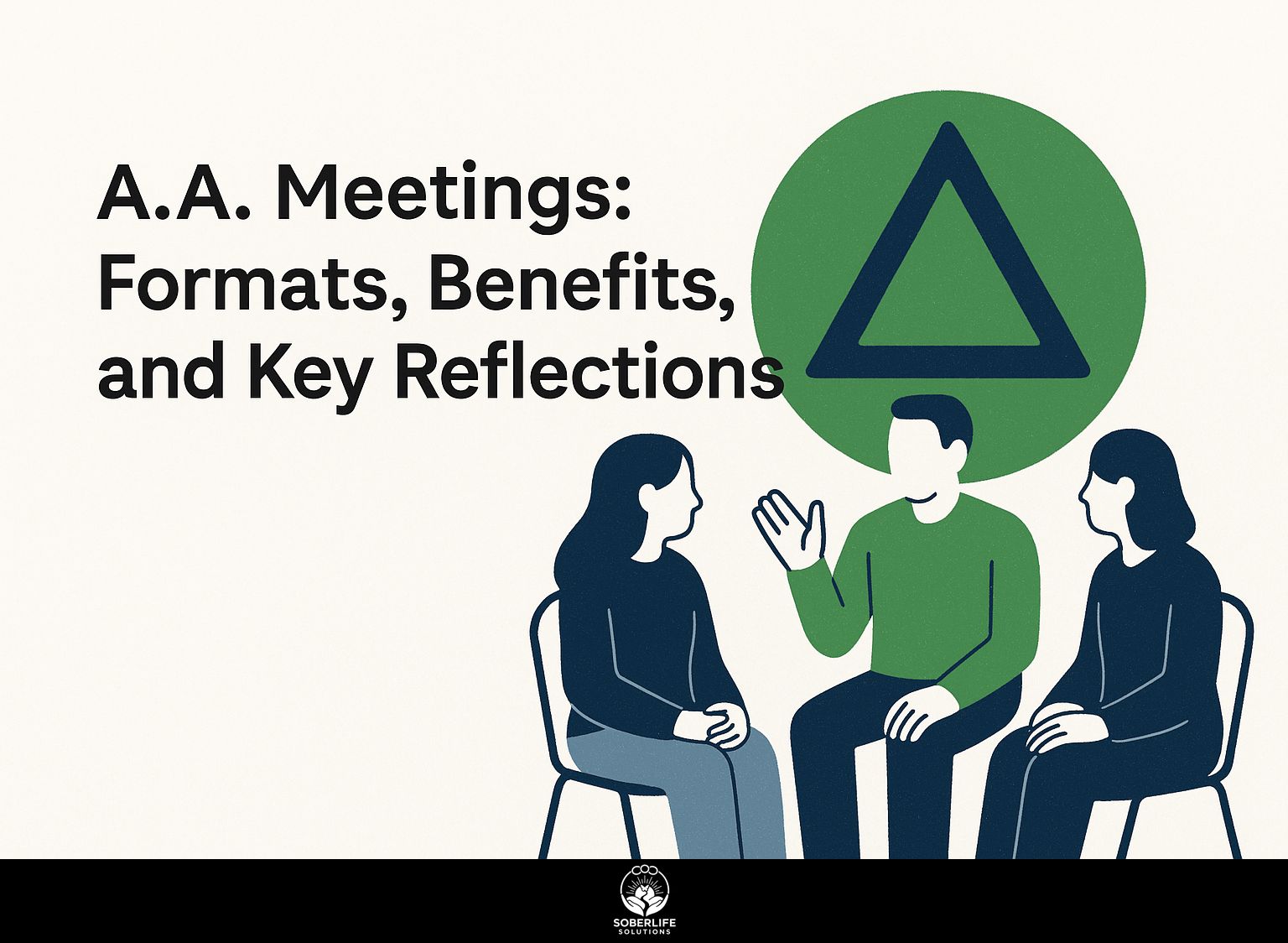
It’s normal to feel isolated when dealing with alcoholism, but A.A. meetings offer a helpful approach to beat addiction. Founded by Alcoholics Anonymous, these gatherings are built around the Twelve Steps, creating a supportive community for shared experiences. In this article, we’ll discuss the different types of A.A. meetings, the many advantages they offer, and important thoughts from participants that show their significant effect on recovery experiences. Learn how A.A. can improve lives.
Key Takeaways:
A.A. Meetings Overview
Knowing how A.A. meetings work and why they are held is important for anyone wanting to recover successfully.
Purpose and Importance
A.A. meetings offer essential help for people dealing with alcoholism, creating a space for shared stories and mutual respect.
Anonymity is a cornerstone of A.A., allowing members to speak freely without fear of judgment. Each meeting emphasizes confidentiality, encouraging participants to refrain from disclosing others’ identities.
Typical practices include using first names only and sometimes adopting pseudonyms. New members are kindly reminded that everything talked about in the room is private, which helps create trust.
This friendly place encourages people to talk openly and shows them that they are not alone in their challenges, building a community that is important for healing.
History of A.A. Meetings
Founded in 1935, Alcoholics Anonymous has evolved significantly, with its meetings rooted in the Twelve Steps and the teachings of the Big Book.
Over the decades, AA has changed its meeting formats to better serve different groups of people. Early meetings were often held in private homes, emphasizing anonymity and trust.
As awareness grew, open meetings became more common, allowing anyone interested to attend and engage. Specialized groups addressing variations such as women-only or LGBTQ+ meetings emerged, reflecting the need for inclusive spaces.
Nowadays, virtual meetings have become popular, enabling people to connect from around the world, bringing together diverse experiences and difficulties in recovery, a shift deeply rooted in the organization’s history documented by Wikipedia.
Types of A.A. Meetings
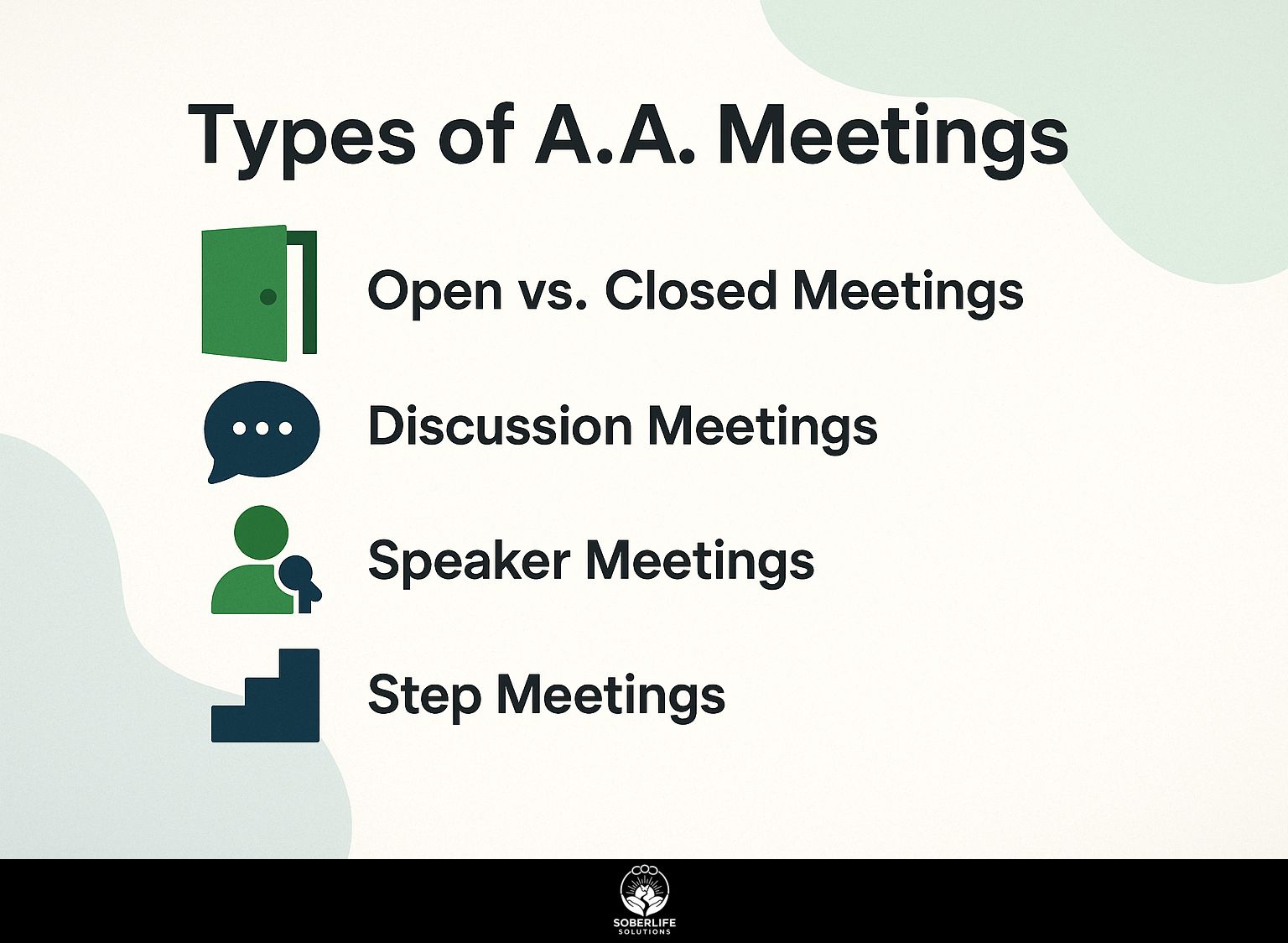
A.A. has different types of meetings to support members with their specific needs during recovery (learn more about the formats of open and closed A.A. meetings).
Open vs. Closed Meetings
Open meetings welcome anyone interested in A.A.’s principles, while closed meetings are reserved for individuals who identify as alcoholics.
Open meetings provide a friendly setting where friends and family can learn about recovery, making them helpful for community gatherings and educational programs.
On the other hand, closed meetings offer a private setting, important for newcomers who worry about keeping their identity secret.
For instance, a person hesitant about sharing their struggles might feel more comfortable in a closed meeting, where the focus is on personal experiences without outside judgment. This distinction helps create environments that cater to varying comfort levels and needs among participants. For expanded context, Verywell Mind provides a detailed analysis of open and closed AA meetings, shedding light on their specific benefits. Learn more about the nuances and structures of these meetings through our guide on A.A. meeting formats.
Discussion Meetings
Discussion meetings help people share their personal stories and build strong relationships with others.
To structure these meetings effectively, begin by selecting topics relevant to the participants’ interests. This could be done through anonymous surveys prior to the meeting.
During the meeting, encourage attendees to share personal experiences related to the chosen topics, as this builds empathy and accountability. For example, if the topic is ‘overcoming challenges,’ one member could share strategies that helped them bounce back.
Conclude each meeting with reflections, where participants express key takeaways and how they plan to implement them, reinforcing accountability within the group.
Speaker Meetings
In speaker meetings, members share their personal stories of recovery, providing inspiration and hope to others in attendance.
These meetings typically feature a few key segments.
At the start, a planned speaker talks about their experiences, highlighting challenges and important achievements. This testimony serves as a powerful motivator, illustrating the possibility of recovery.
After the main speaker finishes, others can share their thoughts or experiences, helping to build a friendly group. Tools like conversation starters can help keep discussions on track and focused.
These personal stories reveal the struggles people encounter and their ability to overcome them. They highlight that while each person’s path to recovery is unique, others can still connect with it.
Step Meetings
- Step meetings focus on discussing one of the Twelve Steps, encouraging members to reflect on their recovery progress.
Each meeting typically begins with a reading of the selected Step, establishing a foundation for discussion.
Members share their personal experiences about that Step one by one, which helps create a sense of community and connection. For example, when discussing Step Four, which involves personal inventory, members might share how they identified their character defects. This helps people understand personal knowledge and see things from different viewpoints.
Facilitators often ask open-ended questions to increase involvement and encourage responsibility in each person’s recovery process.
Benefits of A.A. Meetings
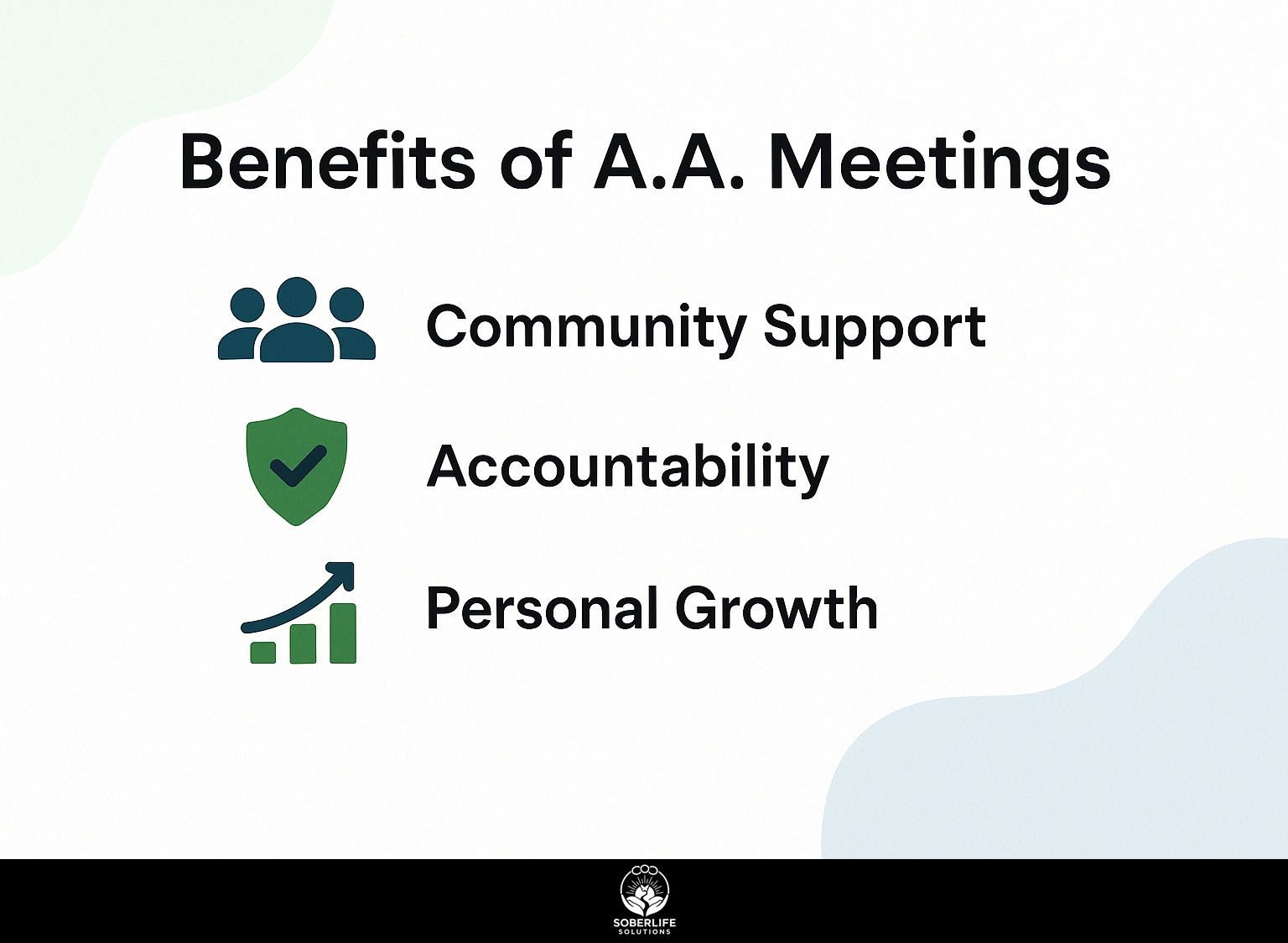
A.A. meetings provide many benefits, including better community support, more personal responsibility, and chances for self-improvement. As mentioned in our detailed exploration of why A.A. meetings are essential, these gatherings address various challenges and offer substantial support to individuals in recovery.
Community Support
The community feeling in A.A. meetings gives important social support that helps with recovery.
This shared experience helps individuals realize they are not alone in their struggles. Group discussions let people tell their own stories, sharing ideas that others can connect with.
Many have found that engaging in service activities, such as organizing meetings or providing mentorship, deepens their connections and reinforces their commitment to sobriety.
Online support groups, such as those found on platforms like Meetup or Facebook, extend these connections beyond local meetings, offering a network of encouragement that is accessible anytime. For those interested in understanding the dynamics of support in recovery, research findings published by Nature explore how these networks can significantly aid in overcoming substance abuse challenges.
These interactions build a strong support network that is essential during difficult periods. Understanding why A.A. meetings are considered essential can provide deeper insight into these challenges and the support mechanisms available.
Accountability
Attending A.A. meetings regularly helps people take responsibility for their actions by building a group that offers support and motivation.
Members often achieve success by discussing their challenges and improvements with each other, creating a feeling of accountability.
For example, a newcomer might pair up with a ‘sponsor’-an experienced member who provides guidance and support. This connection helps the newcomer set reachable goals and motivates the sponsor to stay committed to their own recovery.
Establishing a daily check-in routine through phone calls or texts reinforces commitment, creating a consistent reminder of one’s aspirations and responsibilities.
Personal Growth
A.A. meetings promote personal growth through self-reflection and the application of the Twelve Steps to daily life.
Members often talk about their experiences, showing how these methods help them find and address harmful habits.
One person shared that while working on the Fourth Step, which involves a detailed self-reflection, they discovered unrecognized grudges that were impacting their relationships.
Tools such as journals or mobile tracking apps can facilitate this introspection.
Many people find partners in the group helpful for encouragement and motivation, creating a support system that helps with personal growth and staying committed to sobriety.
Key Reflections from Participants
Participants in A.A. meetings often share important thoughts that offer helpful information about their recovery experiences. These gatherings are crucial for addressing the challenges faced by attendees and providing essential support, as highlighted in our analysis of why A.A. meetings are essential.
Personal Stories of Recovery
Personal stories shared during meetings illustrate the diverse paths individuals take towards recovery, highlighting resilience and hope.
One example is John, who struggled with alcohol for over a decade before finding refuge in A.A. He attended his first meeting feeling lost but soon connected with a sponsor who guided him through the 12 steps.
Another poignant story is that of Maria, who, after losing her job, realized she needed help. By talking about her experiences during weekly meetings, she gained support and made friends that helped her stay sober.
These narratives reveal how A.A. creates a supportive community where individuals can rebuild their lives together.
Lessons Learned
Members often talk about important lessons they learned during their recovery, sharing helpful ways to cope and gain awareness.
Many emphasize the importance of establishing a daily routine to maintain structure and purpose. For instance, incorporating activities like morning walks or journaling can set a positive tone for the day.
Using support groups is very helpful; participating in regular meetings, whether face-to-face or online using tools like Zoom, helps build relationships. Participants frequently recommend mindfulness practices, such as meditation or yoga, to help manage cravings.
These practical methods help build determination, making recovery easier and more satisfying.
Frequently Asked Questions
What are the different formats for A.A. meetings?
There are different types of A.A. meetings, such as those where someone gives a talk, group discussions, and meetings focused on the steps. Each meeting may also have a unique structure or focus.
What are the benefits of attending A.A. meetings?
Attending A.A. meetings can provide a sense of community and support, as well as a safe space to share and reflect. A.A. meetings provide a chance to hear about others’ experiences and see recovery in different ways.
What are key reflections to keep in mind during A.A. meetings?
Some important thoughts to remember during A.A. meetings are that you are not alone in your recovery and that each person’s path to recovery is unique. It’s also important to listen and share honestly, without judgment or criticism.
How often should one attend A.A. meetings?
There is no set rule for how often one should attend A.A. meetings. Some may choose to attend daily, while others may only go once a week. The key is to attend as often as needed to maintain sobriety and continue working on recovery.
Can non-alcoholic individuals attend A.A. meetings?
Yes, non-alcoholic individuals are welcome to attend A.A. meetings for support and to learn about the recovery process. However, we should respect the privacy and keep the stories shared at the meeting confidential.
Are A.A. meetings religious in nature?
No, A.A. meetings are not affiliated with any particular religion and do not promote any specific beliefs. The program is built on spiritual ideas and helps people discover their own sense of a higher power or spirituality.

